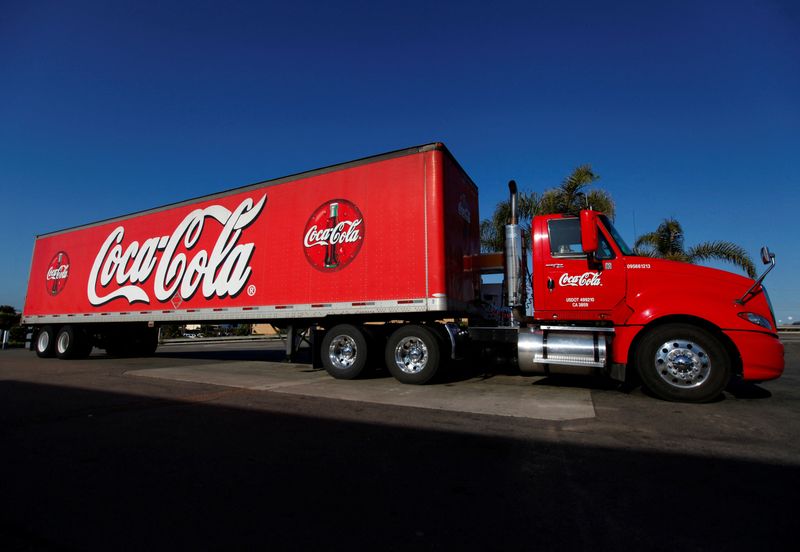
© Reuters. FILE PHOTO: A Coca-Cola truck fills up with diesel fuel at a gas station in Carlsbad, California, March 20, 2012. REUTERS/ Mike Blake/File Photo
By Savyata Mishra
(Reuters) – (This June 30 story has been officially corrected to drop the reference to aspartame being removed from PepsiCo (NASDAQ:) products in 2020, in paragraph 9. A PepsiCo spokesperson corrected an earlier statement from an outside company spokesperson) Coca-Cola (NYSE:) will only see a limited impact if the world health agency classifies the artificial sweetener used in its Diet Coke, aspartame, as a possible carcinogen, thanks to its scale of production, analysts said on Friday.
Such a classification of the popular additive in July by the World Health Organization’s cancer research arm could cause consumers, food companies, retailers and restaurants to decide whether to fight back or find alternatives.
But for Coca-Cola, whose low-calorie products accounted for a third of its total volumes sold in 2022, analysts said switching to a natural sweetener could be easier than many other companies that use aspartame.
“Coca-Cola has one of the best production and distribution systems globally… who have successfully navigated plenty of hurdles in the past, like sugar taxes and reformulations associated with that,” said Charlie Higgs, an associate partner at Redburn Ltd, a consumer staples research firm.
In the past, beverage makers like Coca-Cola and PepsiCo have tweaked their ingredient composition to comply with evolving policy changes.
The companies had in 2012 altered their manufacturing process of the caramel coloring in their colas to meet the requirements of a California ballot initiative aiming to limit people’s exposure to toxic chemicals.
Market Analyst Grzegorz Drozdz at investment firm Conotoxia Ltd said the shift from aspartame could hit the short-term profitability of Coca-Cola, but does not see a steep decline in its long-term growth due to its production history.
However, PepsiCo could get an edge over its rival as it had moved away from aspartame to a blend of sucralose and acesulfame potassium earlier, CFRA Research said.
The company first replaced the additive from some U.S. diet sodas in 2015, but brought it back in some products a year later.





